Nutritional health
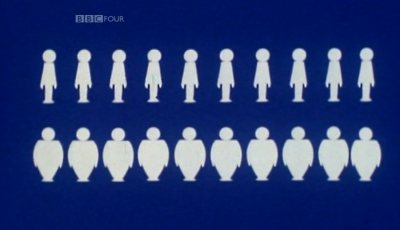
Sugar in processed foods | Diet: A Horizon Guide
Sugar in processed foods | Diet: A Horizon Guide
The introduction of sugar into processed foods improved the taste and had a dire effect on a generation's health.
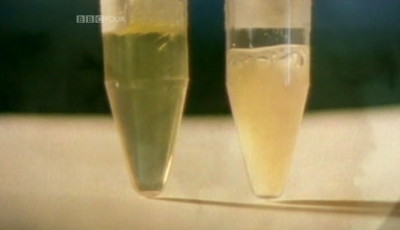
Saturated fats and fibre | Diet: A Horizon Guide
Saturated fats and fibre | Diet: A Horizon Guide
Susan Jebb looks back at when Horizon brought light to the different types of fats we were eating and the affect this had on...
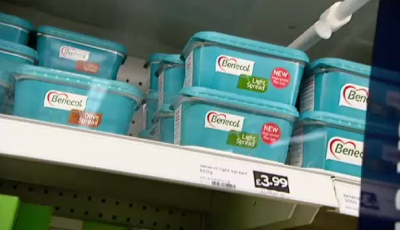
Cholesterol and different fats | Dr Alice Roberts: Don't Die Young
Cholesterol and different fats | Dr Alice Roberts: Don't Die Young
Alice finds out about cholesterol and what different types of fat affect it.
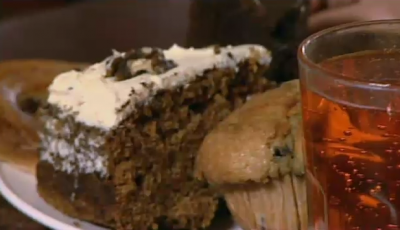
Diabetes, Glucose and Insulin | Dr Alice Roberts: Don't Die Young
Diabetes, Glucose and Insulin | Dr Alice Roberts: Don't Die Young
Alice demonstrates the affect of sugar on the blood and how insulin is formed.
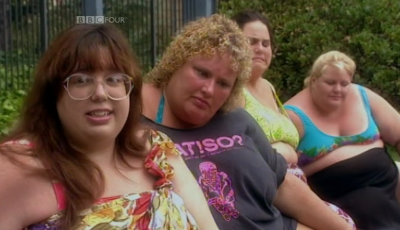
The why of obesity and its history | Diet: A Horizon Guide
The why of obesity and its history | Diet: A Horizon Guide
Susan Jebb mentions her own research that proved that obese people having a slow metabolism was a complete myth.

Foods with a low glycaemic index | What's The Right Diet For You? A Horizon Special
Foods with a low glycaemic index | What's The Right Diet For You? A Horizon Special
The "feasters" are split and are given different lunches with varying GI (glycaemic index...

Fasting, fats and ketones | What's The Right Diet For You? A Horizon Special
Fasting, fats and ketones | What's The Right Diet For You? A Horizon Special
The "cravers" are put on a strict intermittent fasting diet which has a considerable effect on t...
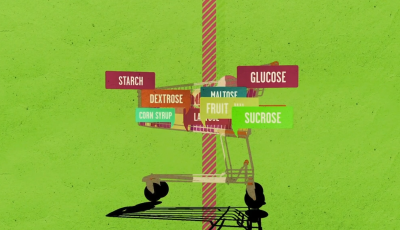
Sugar and the brain | Food on the Brain
Sugar and the brain | Food on the Brain
Neuroscientist Nicole Avina describes the affect of a consistent supply of sugar on the brain and the similarities this has to drug a...
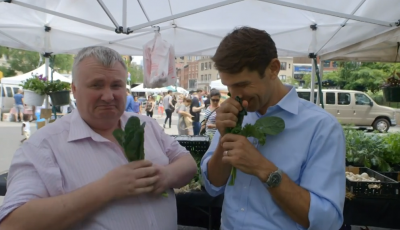
Fish and kale: brain-food | Food on the Brain
Fish and kale: brain-food | Food on the Brain
Stephen tries some foods that are good for the brain and finds out why fish and kale are particularly good.
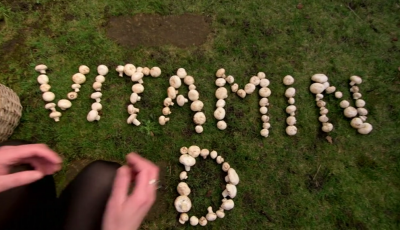
Mushrooms, Sun and Vitamin D | Britain's Favourite Foods - Are They Good for You?
Mushrooms, Sun and Vitamin D | Britain's Favourite Foods - Are They Good for You?
Alice reveals how mushrooms have a similar membrane to our skin that soak up vitamin D when...
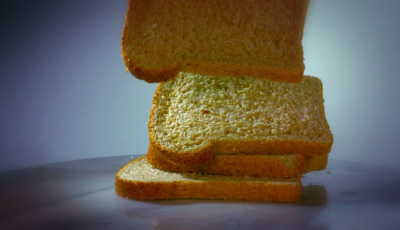
Bread and salt | Britain's Favourite Foods - Are They Good for You?
Bread and salt | Britain's Favourite Foods - Are They Good for You?
Alice reveals how much bread we eat as a nation and a worrying statistic about its salt levels.
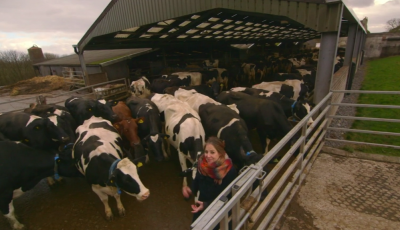
Cheese, calcium and fats | Britain's Favourite Foods - Are They Good for You?
Cheese, calcium and fats | Britain's Favourite Foods - Are They Good for You?
Alice does a test with someone eating a low and high dairy diet to see the effects of shedding ...
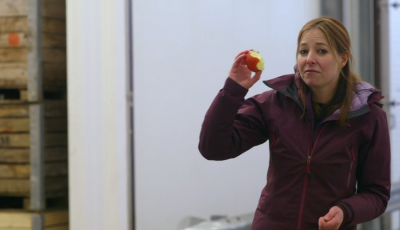
Apples and polyphenols | Britain's Favourite Foods - Are They Good for You?
Apples and polyphenols | Britain's Favourite Foods - Are They Good for You?
Alice finds out that some types of apples are significantly better for us than others; simply the...
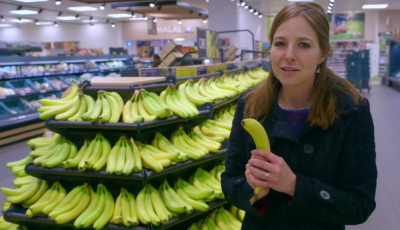
Bananas and potassium | Britain's Favourite Foods - Are They Good for You?
Bananas and potassium | Britain's Favourite Foods - Are They Good for You?
Alice divulges some facts about one of the nations favourite fruits, the banana.
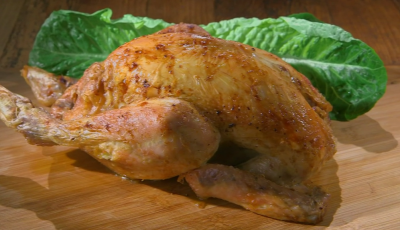
Meat and protein | Britain's Favourite Foods - Are They Good for You?
Meat and protein | Britain's Favourite Foods - Are They Good for You?
A woman's brain pattern is examined with regards to hunger and cravings before and after consuming a pr...
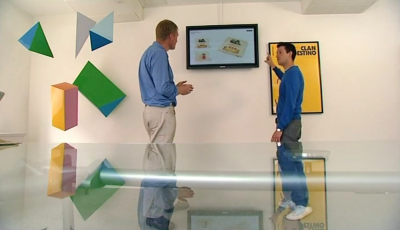
Food labelling and design | What's Really in Our Food?
Food labelling and design | What's Really in Our Food?
A design company skirts around the truth of what can be put on food packaging.

Diet and water-loss | What's The Right Diet For You? A Horizon Special
Diet and water-loss | What's The Right Diet For You? A Horizon Special
When dieting, the initial loss of weight is actually water-loss rather than fat.

Exercise, weigh loss and compensation | What's The Right Diet For You? A Horizon Special
Exercise, weigh loss and compensation | What's The Right Diet For You? A Horizon Special
An exercise scientist explains the benefits of exercise and the phenomenon of "compe...

Metabolic rate myths | What's The Right Diet For You? A Horizon Special
Metabolic rate myths | What's The Right Diet For You? A Horizon Special
Nutritionist Susan Jebb shows how the dieters metabolic rate has reduced in line with the them losing...

Genes, fat levels and leptin | What's The Right Diet For You? A Horizon Special
Genes, fat levels and leptin | What's The Right Diet For You? A Horizon Special
Scientist Giles Yo demonstrates how the dieters genes may not be helping them in their battle...

The importance of breakfast | What's The Right Diet For You? A Horizon Special
The importance of breakfast | What's The Right Diet For You? A Horizon Special
Geneticist Giles Yo outlays the importance of breakfast with a simple experiment.
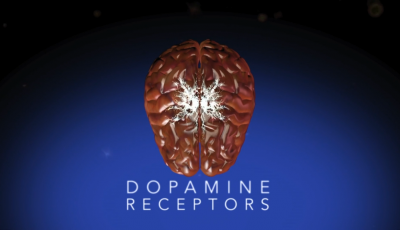
Obesity and dopamine receptors | Food on the Brain
Obesity and dopamine receptors | Food on the Brain
Some research shows that obese people often can have reduced dopamine receptors, meaning that genetically they are transpo...
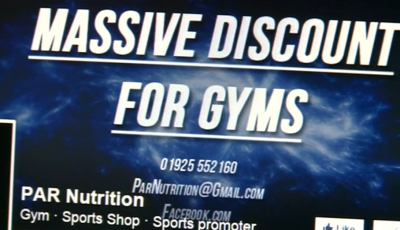
Dietary labelling and misinformation | Week In Week Out
Dietary labelling and misinformation | Week In Week Out
Despite strong legislation surrounding the supplement industry, it is rarely enforced.
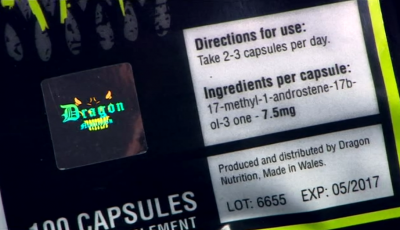
Pro-hormones and steroids | Week In Week Out
Pro-hormones and steroids | Week In Week Out
Some supplements are even masquerading as "designer" steroids, which are in fact a class C drug.
The human digestive system

Bowel cancer and 'transit time' | Dr Alice Roberts: Don't Die Young
Bowel cancer and 'transit time' | Dr Alice Roberts: Don't Die Young
Alice does a test with Les eating sweetcorn to see how long it takes for them to digest the food until ex...
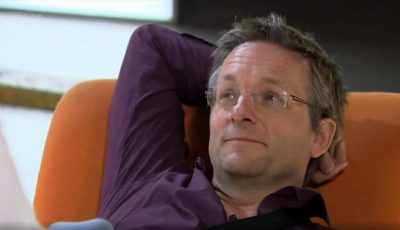
What does your stomach look like from the inside? | Guts: The Strange and Wonderful World of the Human Stomach
What does your stomach look like from the inside? | Guts: The Strange and Wonderful World of the Human Stomach
Michael Mosley finds out what happens inside our stomachs by s...
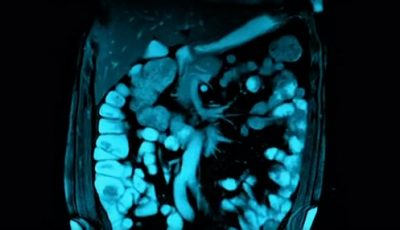
Journey through guts | Dara O'Briain's Science Club
Journey through guts | Dara O'Briain's Science Club
A camera travels through the digestive system.

Digestive powers | Guts: The Strange and Wonderful World of the Human Stomach
Digestive powers | Guts: The Strange and Wonderful World of the Human Stomach
The digestive powers of the gastric juices within the human stomach are tested.

Stomach and intestines | Dr Alice Roberts: Don't Die Young
Stomach and intestines | Dr Alice Roberts: Don't Die Young
Alice shares some facts about the stomach and intestines.
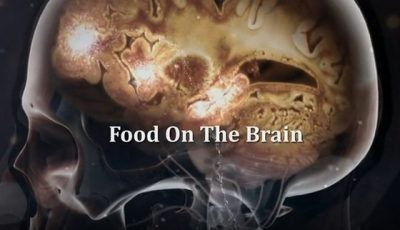
Saliva test | The Secrets of Your Food
Saliva test | The Secrets of Your Food
A saliva test reveals the role of our senses in saliva production and in our digestive system as a whole.
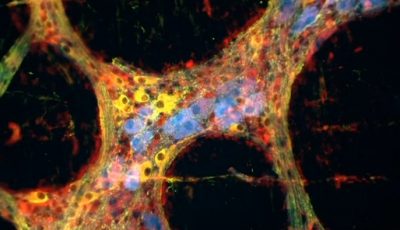
The brain in our gut | Guts: The Strange and Wonderful World of the Human Stomach
The brain in our gut | Guts: The Strange and Wonderful World of the Human Stomach
Our intestines are remarkable similar to that of a pigs.

Anatomy of a stomach | Dr Alice Roberts: Don't Die Young
Anatomy of a stomach | Dr Alice Roberts: Don't Die Young
Alice dissects a pigs stomach to show how a human one works. She also tests her own stomach acid.
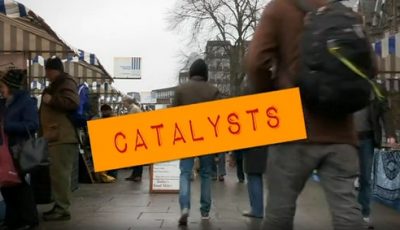
Enzyme power and food as fuel | Bitesize Science
Enzyme power and food as fuel | Bitesize Science
Enzymes are biological catalysts which help us to get the energy we need from food to survive.
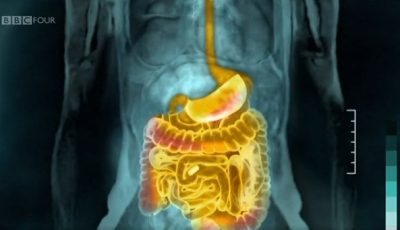
The large intestine | Guts: The Strange and Wonderful World of the Human Stomach
The large intestine | Guts: The Strange and Wonderful World of the Human Stomach
A camera travels through the last part of the digestive system and explores the role of the ...
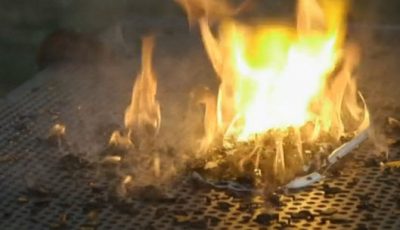
Burning Calories | The Truth About…
Burning Calories | The Truth About…
Dr Chris van Tulleken investigates how much energy is in popular foods by setting them on fire.

The small intestine | Guts: The Strange and Wonderful World of the Human Stomach
The small intestine | Guts: The Strange and Wonderful World of the Human Stomach
A camera travels through the digestive system and shows the frenzy of digestion within the s...
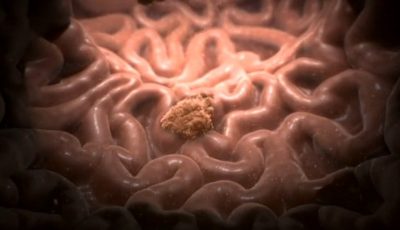
How food and oxygen combine to provide energy to work the body | Inside the Human Body
How food and oxygen combine to provide energy to work the body | Inside the Human Body
Using state-of-the-art graphics, Michael Mosley explains what happens to food inside o...
The circulatory system
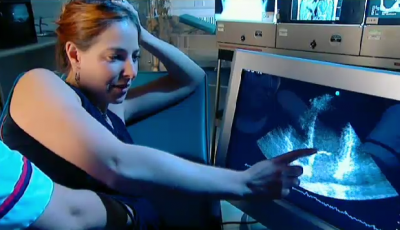
Anatomy of the heart | Dr Alice Roberts: Don't Die Young
Anatomy of the heart | Dr Alice Roberts: Don't Die Young
Alice examines a pigs heart and describes how it works in human terms.
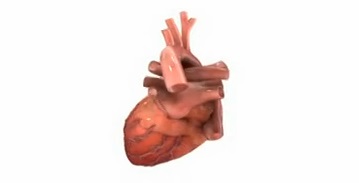
A circulatory path | Heart vs Mind: What makes us human
A circulatory path | Heart vs Mind: What makes us human
In the 17th century, Harvey discovered that blood flows in a circulatory path.
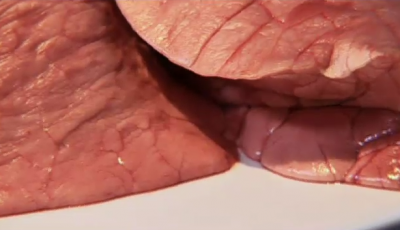
Anatomy of the lungs | Dr Alice Roberts: Don't Die Young
Anatomy of the lungs | Dr Alice Roberts: Don't Die Young
Alice dissects a pigs to demonstrate how our human lungs work.
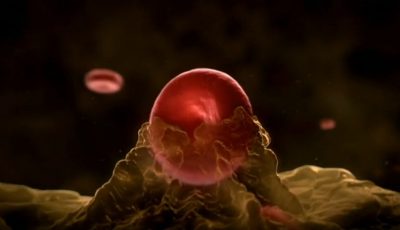
The life cycle of a red blood cell | Inside the Human Body
The life cycle of a red blood cell | Inside the Human Body
Using state-of-the-art graphics, Michael Mosley shows the journey of a red blood cell through the body.
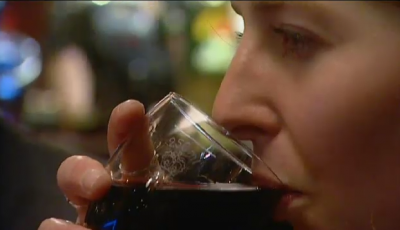
Arteries and alcohol | Dr Alice Roberts: Don't Die Young
Arteries and alcohol | Dr Alice Roberts: Don't Die Young
Alice tests the effect of alcohol on her arteries and blood flow.
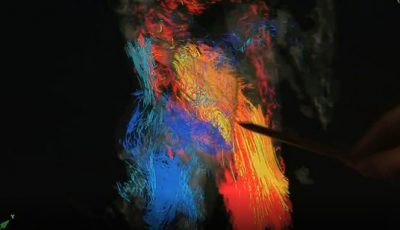
Chambers of the heart | Heart vs Mind: What makes us human
Chambers of the heart | Heart vs Mind: What makes us human
Cardiac imaging reveals how our hearts push blood around our bodies.
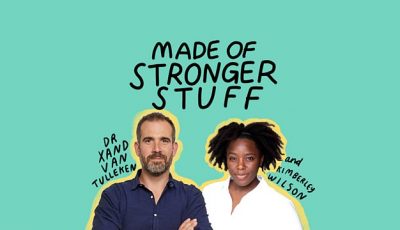
T Cells | Made of Stronger Stuff
T Cells | Made of Stronger Stuff
Psychologist Kimberley Wilson and Dr Xand van Tulleken take a journey through the body's immune system and profile a remarkable white blood ...
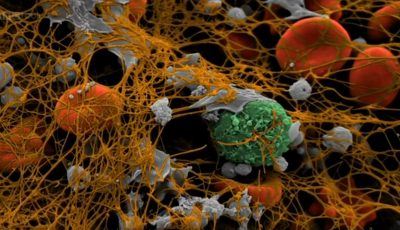
The function of platelets | The Wonderful World of Blood - with Michael Mosley
The function of platelets | The Wonderful World of Blood - with Michael Mosley
Michael Mosley conducts an experiment to demonstrate blood clotting, and explains the role of ...
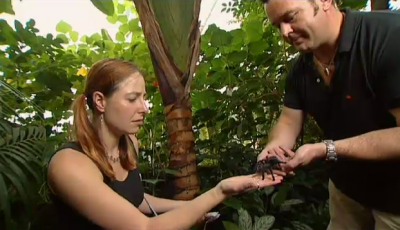
High Blood Pressure | Dr Alice Roberts: Don't Die Young
High Blood Pressure | Dr Alice Roberts: Don't Die Young
Alice demonstrates high blood pressure and explains what it means.
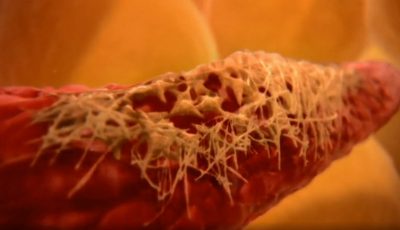
The process of healing a wound | Inside the Human Body
The process of healing a wound | Inside the Human Body
Using state-of-the-art graphics, Michael Mosley illustrates what happens inside the body in response to a wound or inj...

Laughter workshop for the heart | Dr Alice Roberts: Don't Die Young
Laughter workshop for the heart | Dr Alice Roberts: Don't Die Young
A Bristol laughter workshop encourages people to laugh which has an interesting effect on your heart.
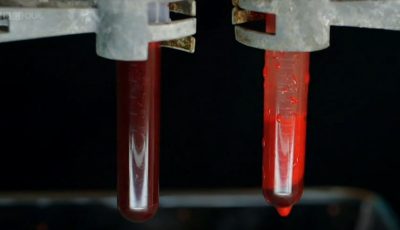
The changes to red blood cells when oxygen is added | The Wonderful World of Blood - with Michael Mosley
The changes to red blood cells when oxygen is added | The Wonderful World of Blood - with Michael Mosley
Michael Mosley pumps oxygen through a blood sample, demonstrating th...
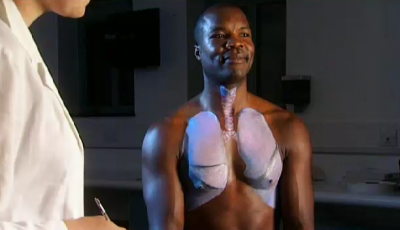
Lung Structure | Dr Alice Roberts: Don't Die Young
Lung Structure | Dr Alice Roberts: Don't Die Young
Alice details the structure of the human lungs.

The immune system and white blood cells | Dr Alice Roberts: Don't Die Young
The immune system and white blood cells | Dr Alice Roberts: Don't Die Young
Alice describes how the immune system works and what white blood cells do when we're ill.
The skeletal and muscular systems

Lifting and treating back pain | Dr Alice Roberts: Don't Die Young
Lifting and treating back pain | Dr Alice Roberts: Don't Die Young
Alice speaks to Scientists Trish and Mike who explain how we do damage to our backs when lifting heavy ite...

Muscles and nerves | Dr Alice Roberts: Don't Die Young
Muscles and nerves | Dr Alice Roberts: Don't Die Young
Alice dissects some muscles and describe how they work in partnership with nerves for movement.

The skeleton and the spine | Dr Alice Roberts: Don't Die Young
The skeleton and the spine | Dr Alice Roberts: Don't Die Young
Alice talks about what it means to have a "straight back" and if it is actually good for us.

What is a slipped disc? | Dr Alice Roberts: Don't Die Young
What is a slipped disc? | Dr Alice Roberts: Don't Die Young
Alice examines the anatomy of a spine and demonstrates what happens when someone has a "slipped disc".

The Spine | Made of Stronger Stuff
The Spine | Made of Stronger Stuff
Psychologist Kimberley Wilson and Dr Xand van Tulleken take a journey around the human body. In this episode, it's the turn of the backbon...

Bones and Osteoporosis | Dr Alice Roberts: Don't Die Young
Bones and Osteoporosis | Dr Alice Roberts: Don't Die Young
Alice talks to a bone expert and finds out the problems they can face as they age.
The human nervous system
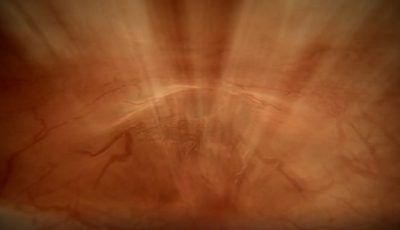
Light receptors | Inside the Human Body
Light receptors | Inside the Human Body
There are two types of light receptors within the retina responsible for detecting and processing light: the rods and the cones.
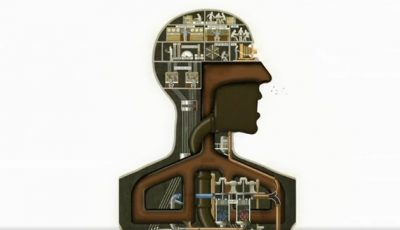
Hearts and minds | Heart vs Mind: What makes us human
Hearts and minds | Heart vs Mind: What makes us human
Scientists are reexaming the relationship between our heart and our brain.
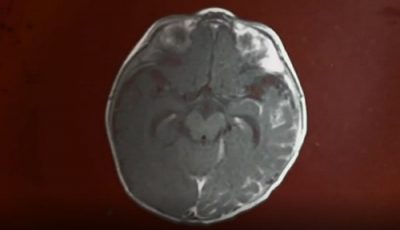
The complexity of brain surgery | Inside the Human Body
The complexity of brain surgery | Inside the Human Body
A little girl, Angelina, requires complex brain surgery in order to alleviate the systoms she is suffering as a resul...
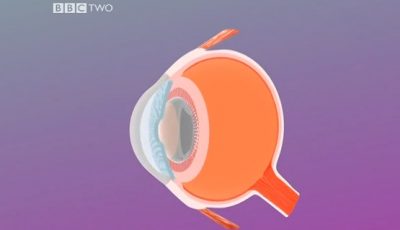
The eye | i-Science
The eye | i-Science
Specialist eye surgeons at the world famous Moorfields Eye Hospital in London, use some of the most technically advanced equipment to take a look inside ...
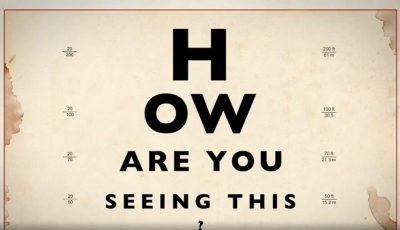
Rods, cones & 3D vision | James May's Things You Need to Know
Rods, cones & 3D vision | James May's Things You Need to Know
James May asks the big questions about his body. Why are we made like this? In this clip, he explores cones, ro...
Homeostasis
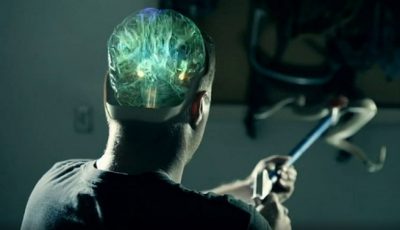
An Introduction to Homeostasis | The Human Body: Secrets of Your Life Revealed
An Introduction to Homeostasis | The Human Body: Secrets of Your Life Revealed
We live on a knife edge, and we are amazingly good at doing it. Chris van Tulleken gives a sim...
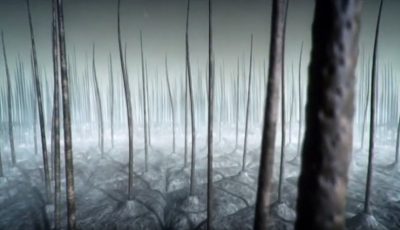
How the body keeps warm in cold environments | Inside the Human Body
How the body keeps warm in cold environments | Inside the Human Body
Using state-of-the-art graphics, Michael Mosley shows what happens in our bodies when we get cold.
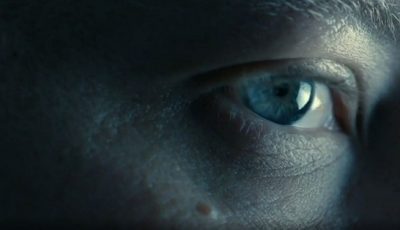
Fear Response | The Human Body: Secrets of Your Life Revealed
Fear Response | The Human Body: Secrets of Your Life Revealed
Chris van Tulleken accompanies some snake hunters at work, showing what happens inside our bodies when we exper...
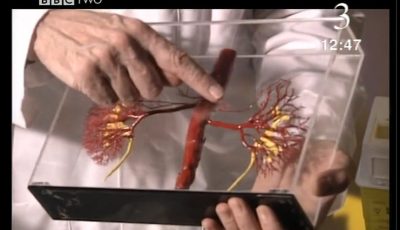
The function of the kidneys | Short Circuit
The function of the kidneys | Short Circuit
The function of the kidneys in the body and how they work, including a cast showing the blood vessel structure.
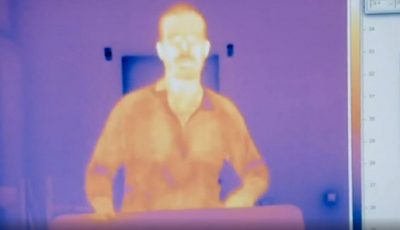
How the body responds to extreme temperatures | The Human Body: Secrets of Your Life Revealed
How the body responds to extreme temperatures | The Human Body: Secrets of Your Life Revealed
Chris van Tulleken uses a miniature thermometer to explore what happens to his ...
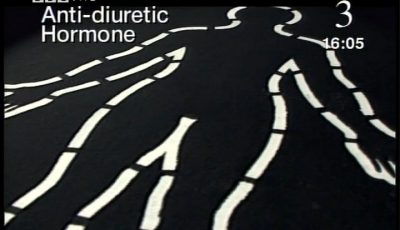
The role of the hypothalamus in water levels in blood | Short Circuit
The role of the hypothalamus in water levels in blood | Short Circuit
An explanation and visualisation of how the hypothalamus works to control water concentration in the bl...
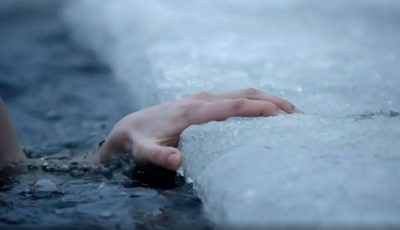
The body's response to extreme cold | The Human Body: Secrets of Your Life Revealed
The body's response to extreme cold | The Human Body: Secrets of Your Life Revealed
How do our bodies react and respond when we dive into freezing water?
Genome, chromosomes and DNA
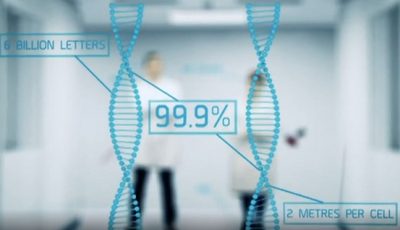
How many genes do we have compared to a banana? | Dara O'Briain's Science Club
How many genes do we have compared to a banana? | Dara O'Briain's Science Club
Dara O'Briain explores how many genes humans have in common with mice, fruit flies, and bananas.
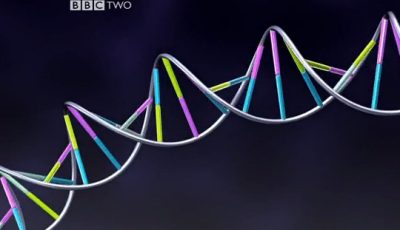
The human genome | i-Science
The human genome | i-Science
Whether genetic technology causes social harms is really up to us and how we choose to use it.
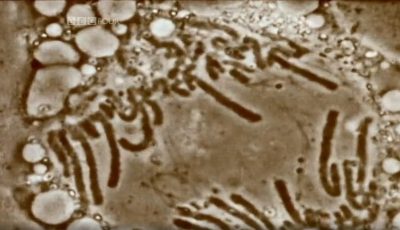
The discovery of chromosomes | The Cell
The discovery of chromosomes | The Cell
Adam Rutherford explores how scientists used better microscopes and new chemical dyes to discover and name chromosomes.
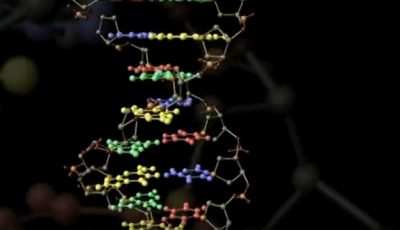
What contributions has The Human Genome Project made? | Dara O'Briain's Science Club
What contributions has The Human Genome Project made? | Dara O'Briain's Science Club
When the human genome was sequenced, it was heralded as one of the most significant even...
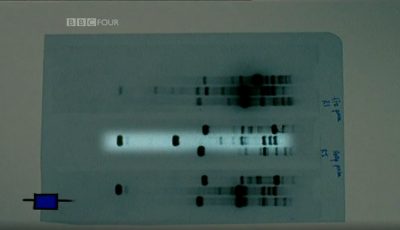
Genetic switches | The Cell
Genetic switches | The Cell
Adam Rutherford meets the scientist Walter Jakob Gehring, who worked with a team of scientists to understand genetic switches.
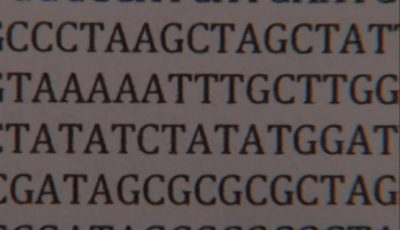
DNA Discovery | The Gene Code
DNA Discovery | The Gene Code
How does the DNA code work?
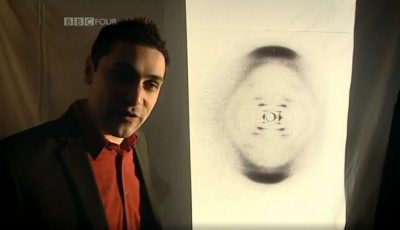
The first images of DNA | The Cell
The first images of DNA | The Cell
Adam Rutherford explains how the work of scientist Rosalind Franklin produced the first images of the structure of DNA.
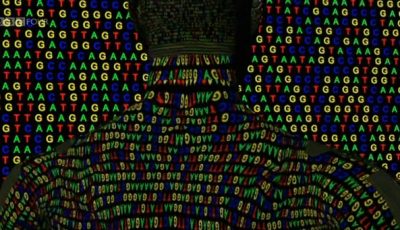
Our genetic code | The Gene Code
Our genetic code | The Gene Code
The human genome is the total of our hereditary information, the complete list of every single one of the three billion bases in our DNA.
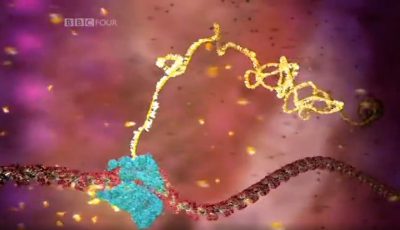
The production of proteins | The Cell
The production of proteins | The Cell
An explanation and visualisation of DNA, RNA, and the production of protein, the process at the heart of every living cell on earth.
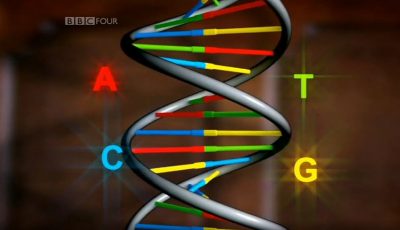
The structure of DNA | The Cell
The structure of DNA | The Cell
Adam Rutherford explains and illustrates the structure of DNA, and the way its discovery revealed the secret of how genes are reproduced when...
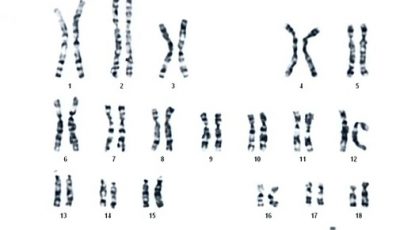
What is a gene? | The Gene Code
What is a gene? | The Gene Code
In the 1980s in Britain, the search to link diseases to specific genes began by focusing on Duchenne Muscular Dystrophy.
Human reproduction
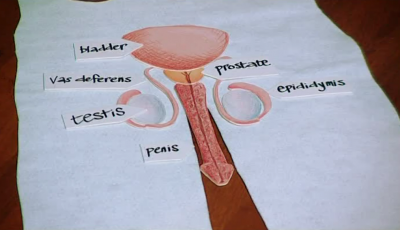
Male Reproductive Organs | Dr Alice Roberts: Don't Die Young
Male Reproductive Organs | Dr Alice Roberts: Don't Die Young
Alice describes the makeup of the male reproductive organ.

How an erection works | Dr Alice Roberts: Don't Die Young
How an erection works | Dr Alice Roberts: Don't Die Young
Alice demonstrates how blood is essential to an erection.

The prostate | Dr Alice Roberts: Don't Die Young
The prostate | Dr Alice Roberts: Don't Die Young
Alices demonstrates where the prostate is and what can happen to it over time.

The Testes | Dr Alice Roberts: Don't Die Young
The Testes | Dr Alice Roberts: Don't Die Young
Alices explains what the testes in the male reproductive system do.
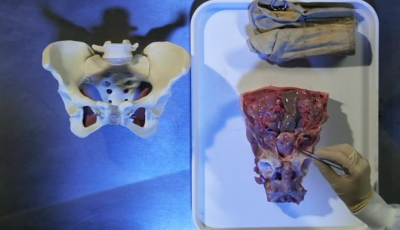
Anatomy of the Female Reproductive Organs | Dr Alice Roberts: Don't Die Young
Anatomy of the Female Reproductive Organs | Dr Alice Roberts: Don't Die Young
Alice dissects a pigs reproductive organs to demonstrate the anatomical makeup of a woman's equ...

MRI of the Female Reproductive Organs | Dr Alice Roberts: Don't Die Young
MRI of the Female Reproductive Organs | Dr Alice Roberts: Don't Die Young
Alice examines an MRI of her own female reproductive anatomy.

Ovulation and menstruation | Dr Alice Roberts: Don't Die Young
Ovulation and menstruation | Dr Alice Roberts: Don't Die Young
Alice explains what happens during ovulation and menstruation.

A sperm's journey | Dr Alice Roberts: Don't Die Young
A sperm's journey | Dr Alice Roberts: Don't Die Young
Alice details the tough journey each sperm endures in an attempt to fertilise an egg.
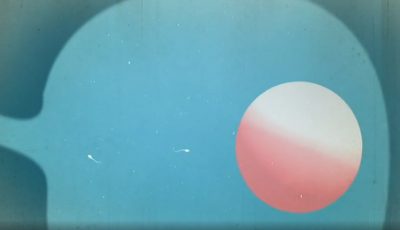
Sperms race to the egg | James May's Things You Need to Know
Sperms race to the egg | James May's Things You Need to Know
James May explains the human reproductive system and how sperm reaches the egg.
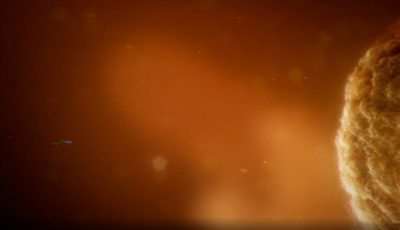
When a sperm cell meets an egg cell | Inside the Human Body
When a sperm cell meets an egg cell | Inside the Human Body
Using state-of-the-art graphics, Michael Mosley shows what happens in the moments a sperm cell meets an egg cell.
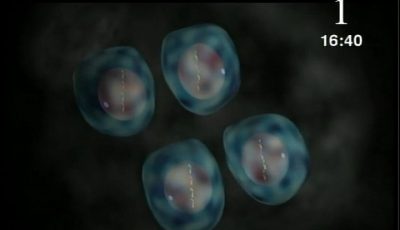
The process of meiosis | Short Circuit
The process of meiosis | Short Circuit
The process of meiosis in sperm and egg cells is explained and illustrated.
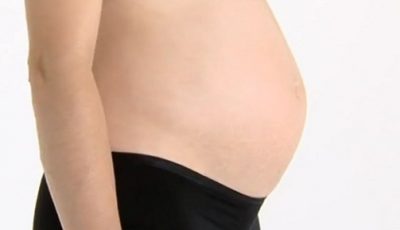
From Embryo to Foetus | Growing Babies
From Embryo to Foetus | Growing Babies
(Contains graphic medical images) Showing the growth of the embryo into the foetus, from five weeks to nine weeks.

Three Weeks Since Conception | Growing Babies
Three Weeks Since Conception | Growing Babies
(Contains graphic medical images) Time-lapse showing how, three weeks from conception, the embryo starts to take shape.
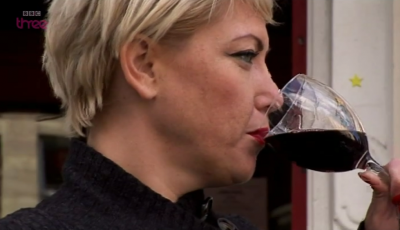
Drinking in first trimester | Misbehaving Mums to Be
Drinking in first trimester | Misbehaving Mums to Be
Juliet is used to four bottles of wine a day. She gets quite a shock when her midwife gives her a total booze-ban.
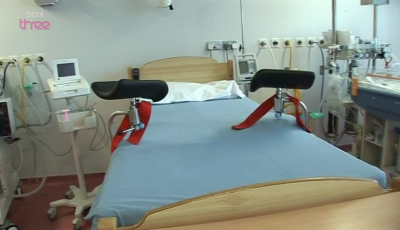
High-risk pregnancy for obese mothers | Misbehaving Mums to Be
High-risk pregnancy for obese mothers | Misbehaving Mums to Be
Kayley visits a maternity ward to see what it means to have a high-risk pregnancy.
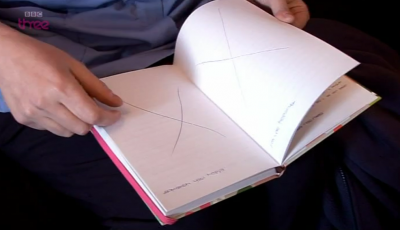
Midwife deals with an under-eating mother | Misbehaving Mums to Be
Midwife deals with an under-eating mother | Misbehaving Mums to Be
Natalie updates her midwife on her food diary and gets a reality check when she has a scan of her twins.
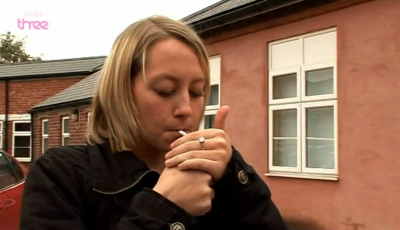
Smoking and pregnancy | Misbehaving Mums to Be
Smoking and pregnancy | Misbehaving Mums to Be
Smoker Charlie is shown how little oxygen her baby is receiving and explains her reasons why she didn't think smoking was that...
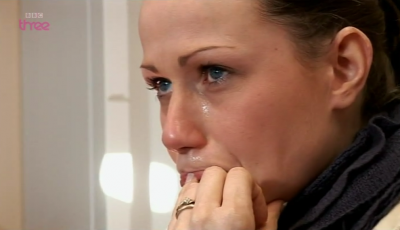
Stress and Pregnancy | Misbehaving Mums to Be
Stress and Pregnancy | Misbehaving Mums to Be
Laura is about to have her second child. She is plagued with worry about doing it all again and the affect this new stress will...
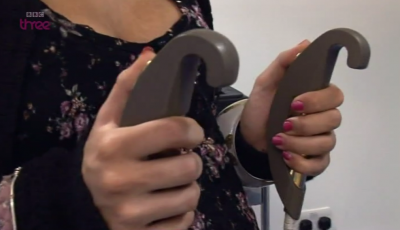
Under-eating and pregnancy | Misbehaving Mums to Be
Under-eating and pregnancy | Misbehaving Mums to Be
Natalie doesn't eat much and when she does its unhealthy food. Her midwife Deb gives her a reality check.
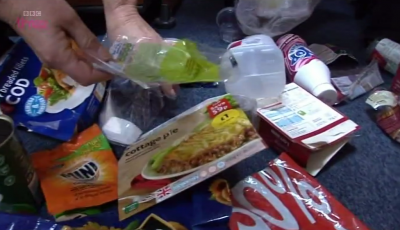
Unhealthy eating and pregnancy | Misbehaving Mums to Be
Unhealthy eating and pregnancy | Misbehaving Mums to Be
Kayley loves chips and gravy but gets a wakeup call from her midwife when she learns what affect this could have on h...
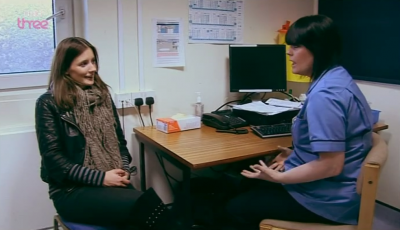
Working too much during pregnancy | Misbehaving Mums to Be
Working too much during pregnancy | Misbehaving Mums to Be
Midwife Deb encourages a workaholic mum-to-be to reduce her hours and rest for the health of the baby.
Genetic inheritence
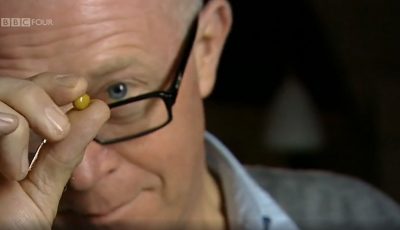
Variation, inheritance and the work of Mendel | Botany: A Blooming History
Variation, inheritance and the work of Mendel | Botany: A Blooming History
How pioneer botanists opened the door to a new branch of science - plant genetics.
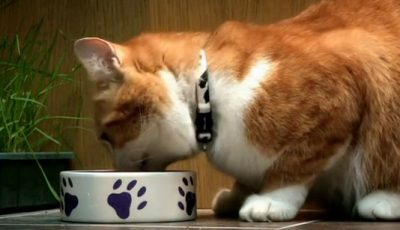
Hunting heritage | Cat Watch 2014: The New Horizon Experiment
Hunting heritage | Cat Watch 2014: The New Horizon Experiment
Cats continue to have characteristics inherited from their ancestors.
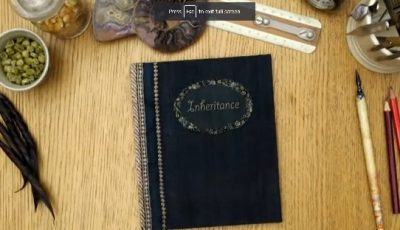
How does inheritance work? | Dara O'Briain's Science Club
How does inheritance work? | Dara O'Briain's Science Club
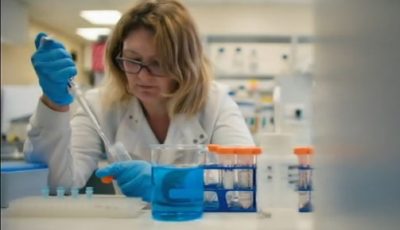
Predicting the future | DNA Family Secrets
Predicting the future | DNA Family Secrets
Geneticists can predict the future by testing for genetic anomalies that can cause inherited diseases, like huntingtons.
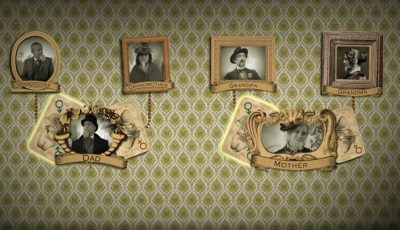
Dominant and recessive genes | James May's Things You Need to Know
Dominant and recessive genes | James May's Things You Need to Know
James May explains DNA and dominant and recessive genes.
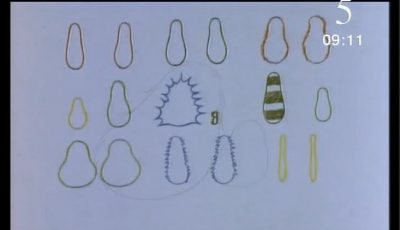
Dominant and recessive genes | Short Circuit
Dominant and recessive genes | Short Circuit
A simple, illustrated explanation of how dominant and recessive genes determine characteristics in animals.

Sickle cell disease | Storyville
Sickle cell disease | Storyville
Sickle cell disease is an inherited disease, caused by a single change in the DNA sequence.
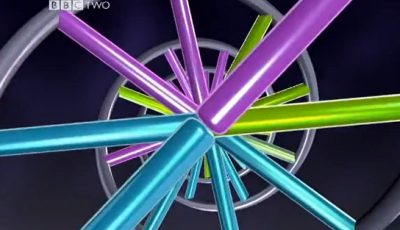
Gene therapy for cystic fibrosis | i-Science
Gene therapy for cystic fibrosis | i-Science
Spec references J247: B6.3l J250: B6.3i. An example of a genetic disease, cystic fibrosis. Someone sharing their experiences of ...
Variation and evolution
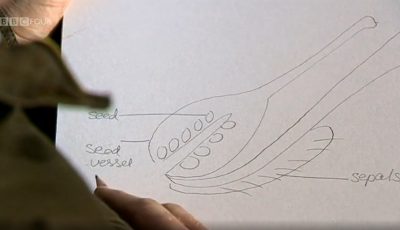
Variation and defining species | Botany: A Blooming History
Variation and defining species | Botany: A Blooming History
Timothy Walker looks at John Ray's discovery of variation, and how it formed the basis of our understanding of pl...
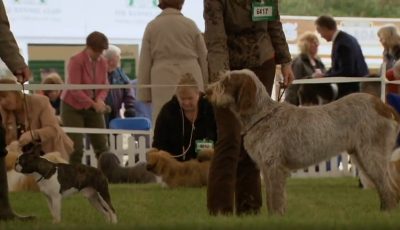
Evidence for evolution | Charles Darwin and the Tree of Life
Evidence for evolution | Charles Darwin and the Tree of Life
David Attenborough explores how the process of evolution produces such astonishing variety.
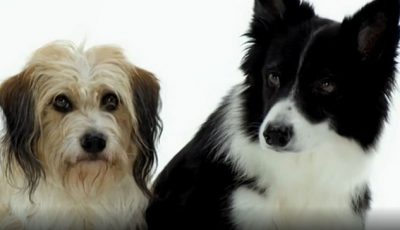
The Making of Man's Best Friend | Dog Tales and Cat Tales
The Making of Man's Best Friend | Dog Tales and Cat Tales
The latest archaeology and genetics answer the biggest questions about dogs. Where did they come from? How can they...
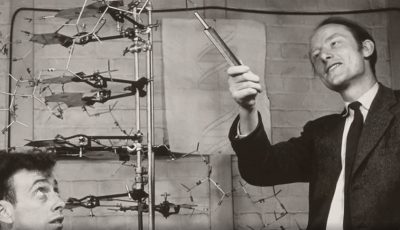
Gregor Mendel, Francis Crick and James Watson | Charles Darwin and the Tree of Life
Gregor Mendel, Francis Crick and James Watson | Charles Darwin and the Tree of Life
David Attenborough explores how the discovery of DNA provided further evidence for Darwi...
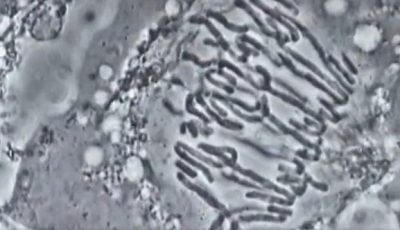
Chimps and us | The Gene Code
Chimps and us | The Gene Code
It seems tiny changes within the gene six million years ago mutated the hotspots on our ancestors' chromosomes and began driving two species ou...

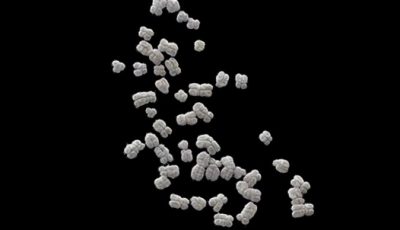
Use it or lose it | The Gene Code
Use it or lose it | The Gene Code
Just as our genomes hang on to the good things, we readily abandon genes that are no longer of any use.
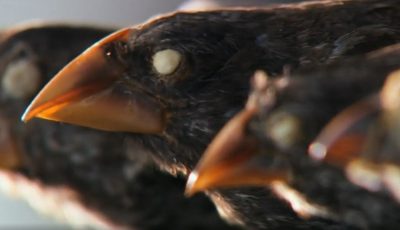
Natural Selection and Darwin's finches | Charles Darwin and the Tree of Life
Natural Selection and Darwin's finches | Charles Darwin and the Tree of Life
David Attenborough outlines Darwin's discovery of the theories of evolution and natural selection.
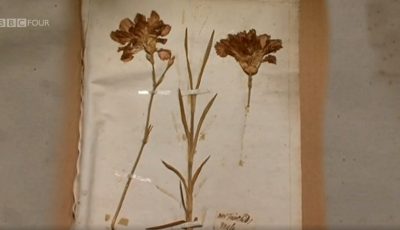
The first hybrid plant | Botany: A Blooming History
The first hybrid plant | Botany: A Blooming History
Thomas Fairchild was the first to artificially cross two plant species and produce a new hybrid plant. This brought him i...
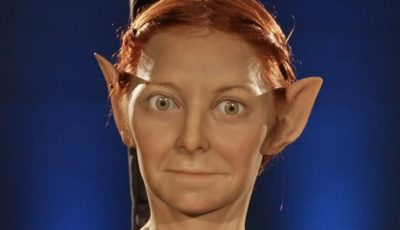
The perfect human? | Can science make me perfect? With Alice Roberts
The perfect human? | Can science make me perfect? With Alice Roberts
What evolution has provided us with is a human body that works as a whole package: you can't replace ind...
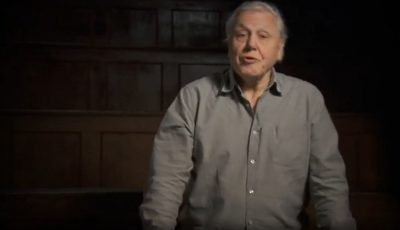
The Tree of Life | Charles Darwin and the Tree of Life
The Tree of Life | Charles Darwin and the Tree of Life
David Attenborough takes us on a journey through time from the first cells through to the complex animals that inhabit...
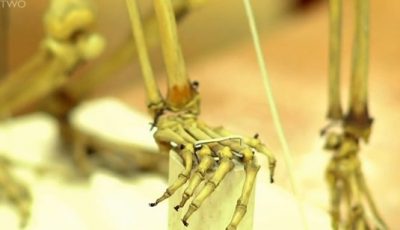
Common ancestor | Evolutionwatch
Common ancestor | Evolutionwatch
Similar bone structures in a number of animals may suggest that they are all descended from the same ancestor.
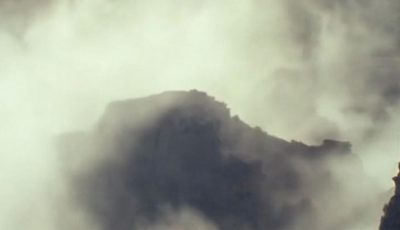
The Beginning of Life | Life on Earth
The Beginning of Life | Life on Earth
David Attenborough explains the origins of life on earth, starting over three and a half thousand million years ago.
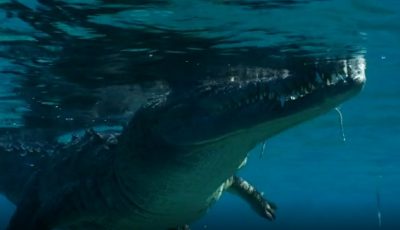
Cuba's ancient giants | Natural World
Cuba's ancient giants | Natural World
American crocodiles have remained largely unchanged since the time of the dinosaurs.
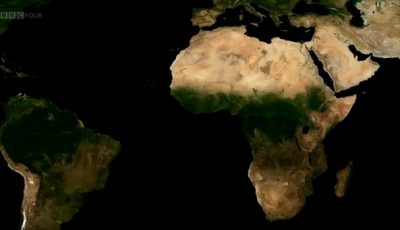
Adaptive radiation | Nature's Wonderlands: Islands of Evolution
Adaptive radiation | Nature's Wonderlands: Islands of Evolution
Adaptive radiation is a feature of island life, where isolation creates an abundance of opportunity.
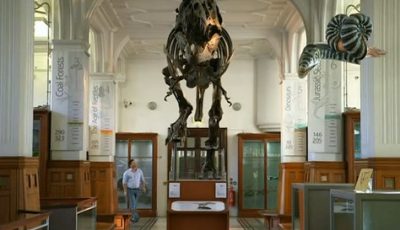
Pentadactyl limb | Secrets of Bones
Pentadactyl limb | Secrets of Bones
The pentadactyl limb adaptation, first seen over 300 million years ago, has helped a variety of animals to fly, from dinosaurs to bats.
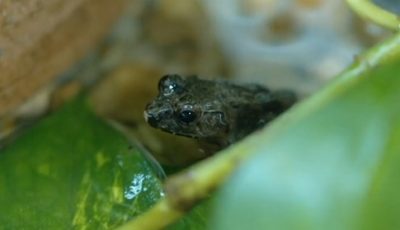
Ecological niches | Nature's Wonderlands: Islands of Evolution
Ecological niches | Nature's Wonderlands: Islands of Evolution
Different ecological niches provide many opportunities for different species to adapt and evolve.
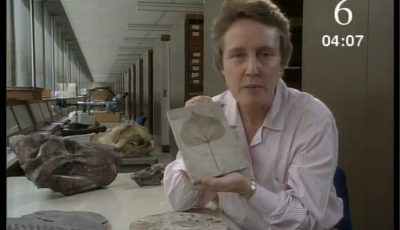
How does the fossil record prove evolution | Short Circuit
How does the fossil record prove evolution | Short Circuit
Angela Milner of the Natural History Museum shows examples of fossils which record the evolutionary changes that h...
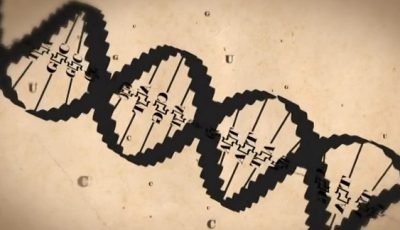
Dizzying leaps | The Gene Code
Dizzying leaps | The Gene Code
How did evolution take us from single cells to complex creatures?
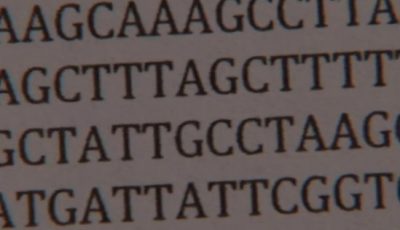
Variety of Life | The Gene Code
Variety of Life | The Gene Code
From a basic fourfold pattern, a stunning variety of life was free to evolve.
Communicable diseases
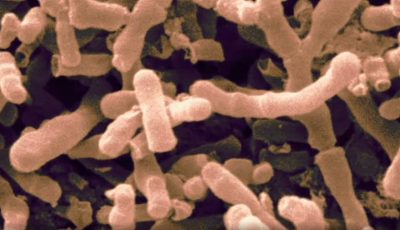
How babies gain intestinal bacteria through their mothers milk | The Human Body: Secrets of Your Life Revealed
How babies gain intestinal bacteria through their mothers milk | The Human Body: Secrets of Your Life Revealed
Why does a human mother's milk contain complex oligosaccharide...
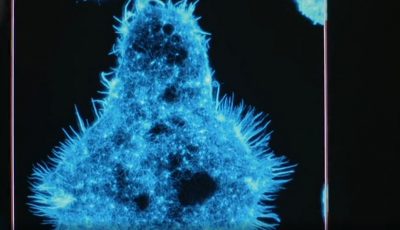
Natural killer cells | The Human Body: Secrets of Your Life Revealed
Natural killer cells | The Human Body: Secrets of Your Life Revealed
How white blood cells, especially 'natural killer cells' fight viruses in our bodies.

S7E2 | Bang Goes the Theory
S7E2 | Bang Goes the Theory
In response to recent fears about the future of antibiotics, the Bang Goes the Theory team investigates germs and infection.
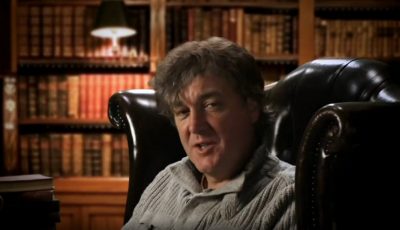
What happens when you get a cold? | James May's Things You Need to Know
What happens when you get a cold? | James May's Things You Need to Know
James May asks the big questions about his body. Why are we made like this? In this clip, he explains...
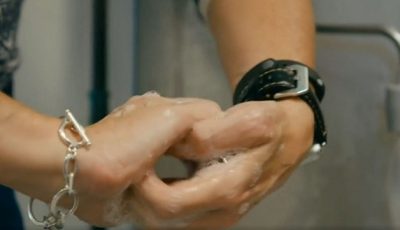
Hand-Washing | The Truth About…
Hand-Washing | The Truth About…
Susan Lea explains why hand-washing is one of the simplest thing we can do as individuals to stop the spread of bacteria in our environment.
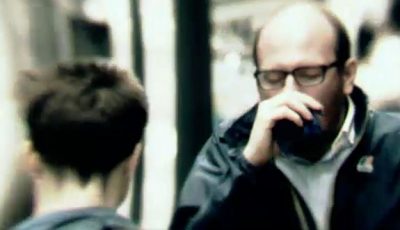
How respiratory viruses spread | Winter Viruses and How to Beat Them
How respiratory viruses spread | Winter Viruses and How to Beat Them
An explanation of how respiratory viruses can spread by causing us to cough and sneeze.
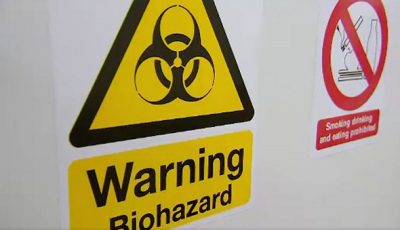
Norovirus Spread | Winter Viruses and How to Beat Them
Norovirus Spread | Winter Viruses and How to Beat Them
A demonstration shows how far norovirus can spread when a person vomits.

What is a virus? | Winter Viruses and How to Beat Them
What is a virus? | Winter Viruses and How to Beat Them
A simple explanation and visualisation exploring what a virus is and how it replicates in the body.
Treating, curing and preventing disease

Edward Jenner's First Vaccination | Extra Life: A Short History of Living Longer
Edward Jenner's First Vaccination | Extra Life: A Short History of Living Longer
The story of Edward Jenner's discovery that deliberately infecting someone with cowpox could...
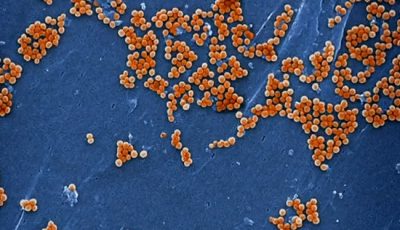
Defeating superbugs | Dara O'Briain's Science Club
Defeating superbugs | Dara O'Briain's Science Club
Could it be, that of all people, the Victorians had the answer to defeating superbugs all along?
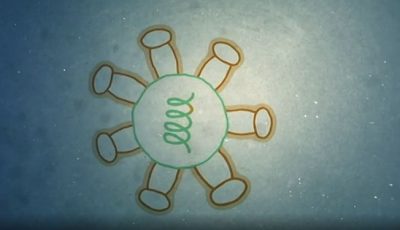
How the COVID-19 Vaccine Works | Extra Life: A Short History of Living Longer
How the COVID-19 Vaccine Works | Extra Life: A Short History of Living Longer
Dr Kizzmekia Corbett, part of the team that developed one of the COVID-19 vaccinations, explain...
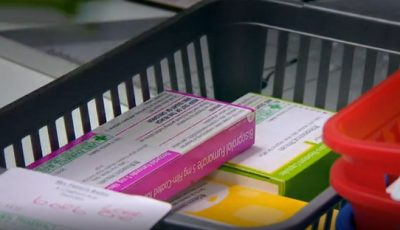
Antibacterial resistance | Bang Goes the Theory
Antibacterial resistance | Bang Goes the Theory
A demonstration of how bacteria can become resistant to antibiotics.
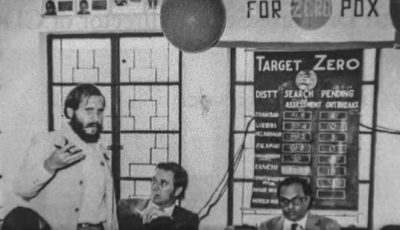
Ring Vaccination and the Eradication of Smallpox | Extra Life: A Short History of Living Longer
Ring Vaccination and the Eradication of Smallpox | Extra Life: A Short History of Living Longer
In the late 1960s, William Foege was running out of smallpox vaccine in Niger...
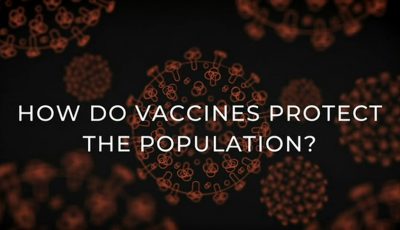
How do vaccines protect the population? | Horizon
How do vaccines protect the population? | Horizon
Hannah Fry demonstrates how vaccines help to protect human populations and provide protection to those that cannot receive ...
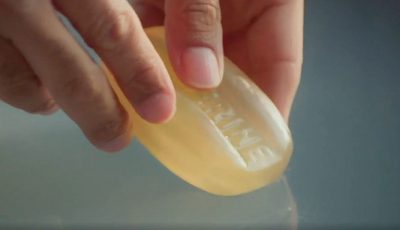
The Power of Soap | Extra Life: A Short History of Living Longer
The Power of Soap | Extra Life: A Short History of Living Longer
How scientists and doctors finally realised the power of soap in preventing the spread of diseases, and how ...
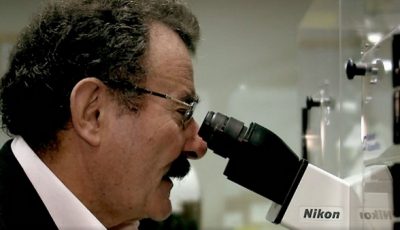
Stem Cell Research | How Science Changed Our World
Stem Cell Research | How Science Changed Our World
Professor Robert Winston explores the medical potential in stem cell research, and meets a team of scientists at Imperial ...
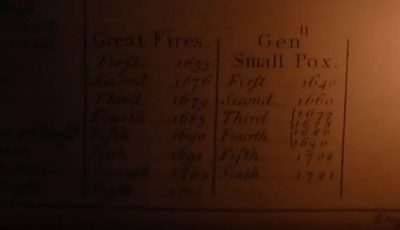
Variolation; the fore-runner to vaccination | Extra Life: A Short History of Living Longer
Variolation; the fore-runner to vaccination | Extra Life: A Short History of Living Longer
Around 1700, an enslaved man who was trafficked to Boston brought with him the kno...

The Human Genome Project | How Science Changed Our World
The Human Genome Project | How Science Changed Our World
Professor Robert Winston explores how the Human Genome Project and gene therapy could help revolutionise diagnosis, ...
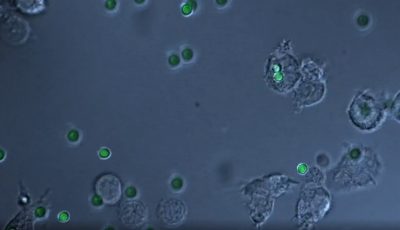
An introduction to phagocytes | Inside the Human Body
An introduction to phagocytes | Inside the Human Body
Michael Mosley looks at how white blood cells, called phagocytes, fight bacteria inside our blood.
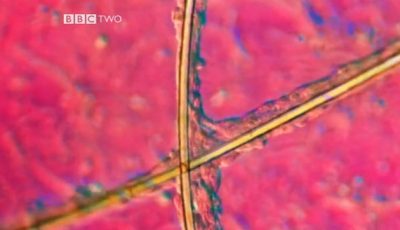
Embryonic stem cells | i-Science
Embryonic stem cells | i-Science
Stem cell research raises ethical issues, which makes some people uncomfortable about it, in spite of the potential benefits.
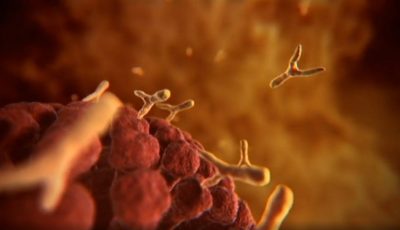
The role of T cells and antibodies when fighting an infection | Inside the Human Body
The role of T cells and antibodies when fighting an infection | Inside the Human Body
Using state-of-the-art graphics, Michael Mosley explains what happens when a virus ente...
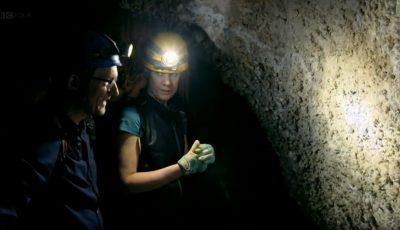
Antibiotic resistance in bacteria as evidence for evolution | Michael Mosley vs The Superbugs
Antibiotic resistance in bacteria as evidence for evolution | Michael Mosley vs The Superbugs
Michael Mosley explains how bacteria can naturally evolve to be resistant to an...
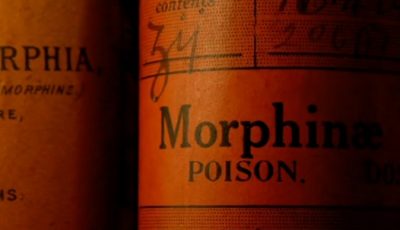
Pain message | Pain, Pus and Poison: The Search for Modern Medicine
Pain message | Pain, Pus and Poison: The Search for Modern Medicine
Painkillers act at different points along the pain pathways to turn the pain response down.
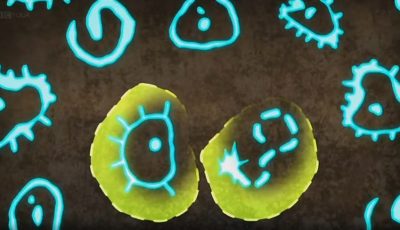
Horizontal gene transfer | Michael Mosley vs The Superbugs
Horizontal gene transfer | Michael Mosley vs The Superbugs
Michael Mosley explains and illustrates horizontal gene transfer between bacteria, and how it spreads antibiotic r...
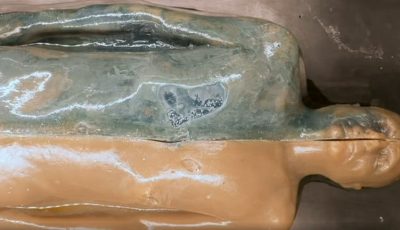
The disadvantages of broad-spectrum antibiotics | Michael Mosley vs The Superbugs
The disadvantages of broad-spectrum antibiotics | Michael Mosley vs The Superbugs
Michael Mosley explains and illustrates how the use of broad-spectrum antibiotics can lead ...
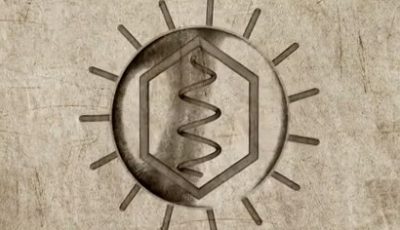
Viruses and vaccines | Pain, Pus and Poison: The Search for Modern Medicine
Viruses and vaccines | Pain, Pus and Poison: The Search for Modern Medicine
The discovery of vaccines has helped scientists to tackle a variety of viruses.
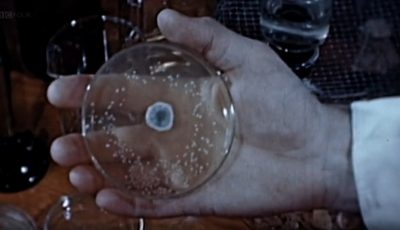
The rise of antibiotic resistant bacteria | Michael Mosley vs The Superbugs
The rise of antibiotic resistant bacteria | Michael Mosley vs The Superbugs
Michael Mosley introduces the problem of antibiotic-resistant bacteria, and Superbugs.
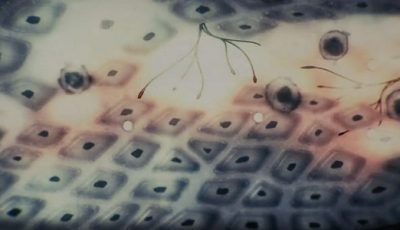
The body's complex repair system | The Human Body: Secrets of Your Life Revealed
The body's complex repair system | The Human Body: Secrets of Your Life Revealed
How our bodies respond and repair when we are injured.
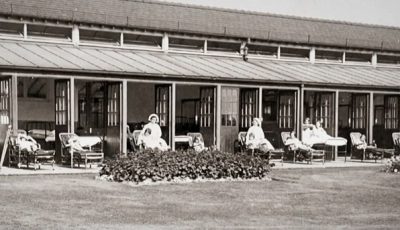
Antibiotic Resistance | The Truth About…
Antibiotic Resistance | The Truth About…
Angela Rippon gives a brief introduction to the antibiotic resistance crisis.

Antibodies and vaccines | Dr Alice Roberts: Don't Die Young
Antibodies and vaccines | Dr Alice Roberts: Don't Die Young
Alice explains what an antibody is and how they relate to getting vaccinated.
Making medicines
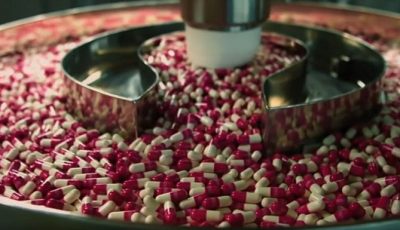
Finding Existing Drugs that Work Against COVID-19 | Extra Life: A Short History of Living Longer
Finding Existing Drugs that Work Against COVID-19 | Extra Life: A Short History of Living Longer
Looking for drugs to treat COVID-19, a team of scientists established one of...
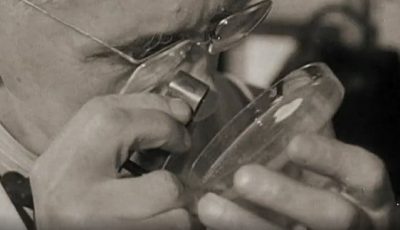
The testing of penicillin on mice | Mutant Mouse
The testing of penicillin on mice | Mutant Mouse
How and why penicillin was tested on mice to discover its uses.

The Development of Anti-Retroviral Drugs to Treat HIV | Extra Life: A Short History of Living Longer
The Development of Anti-Retroviral Drugs to Treat HIV | Extra Life: A Short History of Living Longer
The story of how Professor David Ho worked in a team to develop the firs...
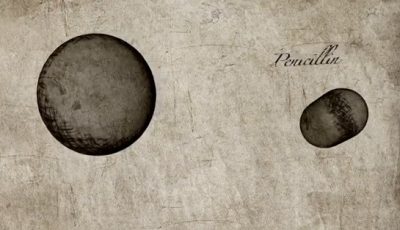
Discovery of penicillin | Pain, Pus and Poison: The Search for Modern Medicine
Discovery of penicillin | Pain, Pus and Poison: The Search for Modern Medicine
Fleming initially discovered the antibacterial properties of mould that would lead to the disc...
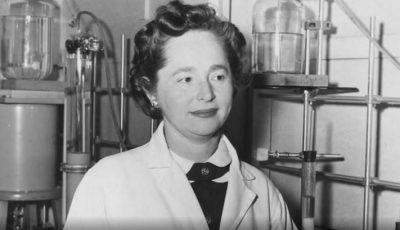
The Development of Anti-Viral Drugs | Extra Life: A Short History of Living Longer
The Development of Anti-Viral Drugs | Extra Life: A Short History of Living Longer
The story and science behind Gertrude Elion and George Hitching's development of a revolut...
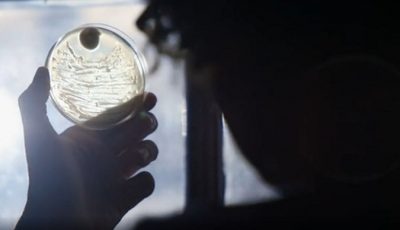
The Discovery of Penicillin | Extra Life: A Short History of Living Longer
The Discovery of Penicillin | Extra Life: A Short History of Living Longer
The story of how Alexander Fleming accidentally discovered penicillin.
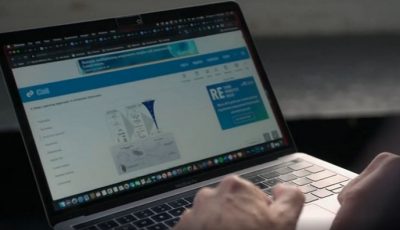
The Scientists Using AI to find New Solutions to Antibiotic Resistance | Extra Life: A Short History of Living Longer
The Scientists Using AI to find New Solutions to Antibiotic Resistance | Extra Life: A Short History of Living Longer
How can the antibiotic resistance crisis be addressed? ...
Cell biology

Sickle cell disease | Storyville
Sickle cell disease | Storyville
Sickle cell disease is an inherited disease, caused by a single change in the DNA sequence.

Genetic switches | The Cell
Genetic switches | The Cell
Adam Rutherford meets the scientist Walter Jakob Gehring, who worked with a team of scientists to understand genetic switches.

The immune system and white blood cells | Dr Alice Roberts: Don't Die Young
The immune system and white blood cells | Dr Alice Roberts: Don't Die Young
Alice describes how the immune system works and what white blood cells do when we're ill.

The discovery of chromosomes | The Cell
The discovery of chromosomes | The Cell
Adam Rutherford explores how scientists used better microscopes and new chemical dyes to discover and name chromosomes.

White blood cells and the 'war' on infection | Dr Alice Roberts: Don't Die Young
White blood cells and the 'war' on infection | Dr Alice Roberts: Don't Die Young
Alice explains how white blood cells fight infection and where they come from.

The first images of DNA | The Cell
The first images of DNA | The Cell
Adam Rutherford explains how the work of scientist Rosalind Franklin produced the first images of the structure of DNA.
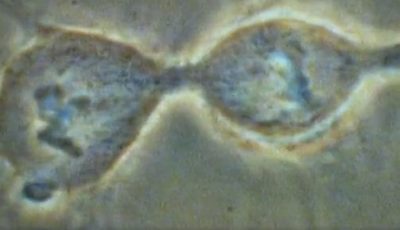
Dance of the chromosomes | Bitesize Science
Dance of the chromosomes | Bitesize Science
Mitosis is a type of cell replication that is essential to the human body's ability to grow and repair.

The production of proteins | The Cell
The production of proteins | The Cell
An explanation and visualisation of DNA, RNA, and the production of protein, the process at the heart of every living cell on earth.
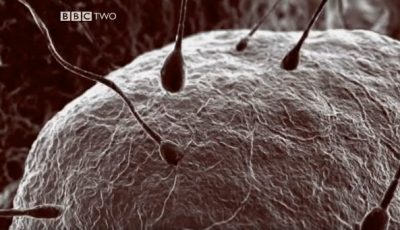
Cell division | i-Science
Cell division | i-Science
What is the role of mitosis and meiosis in the human body?

The structure of DNA | The Cell
The structure of DNA | The Cell
Adam Rutherford explains and illustrates the structure of DNA, and the way its discovery revealed the secret of how genes are reproduced when...
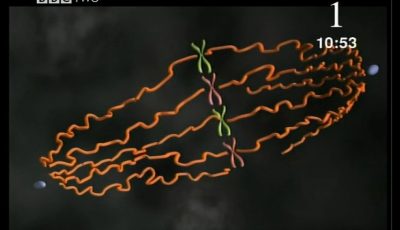
The process of mitosis | Short Circuit
The process of mitosis | Short Circuit
The process of mitosis, seen through a microscope, and then illustrated and explained with a computer simulation.
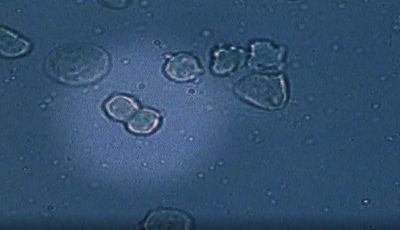
The Discovery of Cell Division | The Cell
The Discovery of Cell Division | The Cell
How little-known scientist Robert Remak came to observe and describe the process of cell division for the first time.
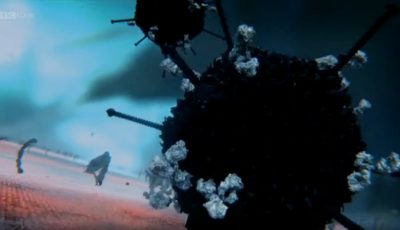
Human defence systems | Secret Universe: The Hidden Life of the Cell
Human defence systems | Secret Universe: The Hidden Life of the Cell
This simulation brings to life the process of a cell's defence against viruses.
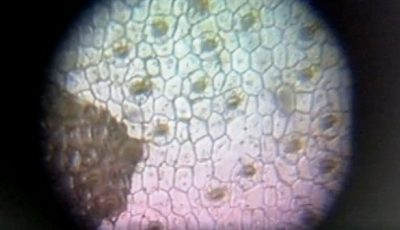
The Identification of the Cell Nucleus | The Cell
The Identification of the Cell Nucleus | The Cell
How Robert Brown used the microscope to notice, identify and describe the nucleus, and discover its ubiquity in cells.
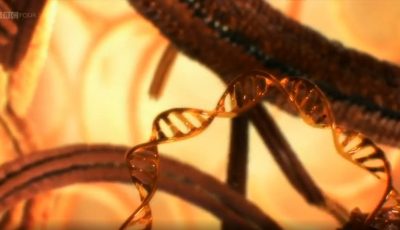
Key parts of the cell | Secret Universe: The Hidden Life of the Cell
Key parts of the cell | Secret Universe: The Hidden Life of the Cell
An amazing visualisation of the cell's structure, and how DNA works within it.
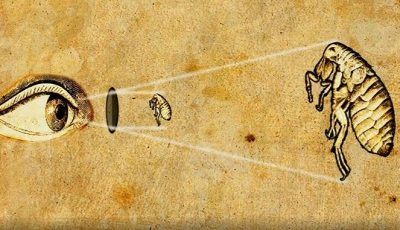
The Invention of the Microscope | The Cell
The Invention of the Microscope | The Cell
Adam Rutherford explains how, in the 1670s, Dutch businessman Anton van Leeuwenhoek revolutionised microscopy by curving a lens mo...
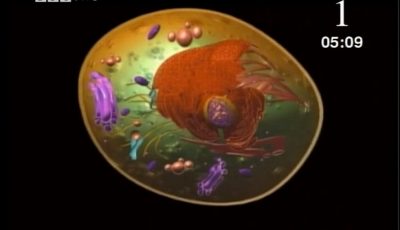
What makes up a cell? | Short Circuit
What makes up a cell? | Short Circuit
A computer simulation of a cell allows us to see the structure of a cell close-up.
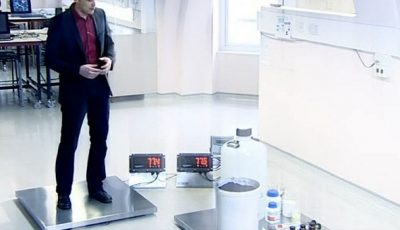
What makes a human? | The Cell
What makes a human? | The Cell
Adam Rutherford gives a basic introduction to cells, and how understanding them is the cornerstone of biology.
Photosynthesis

How iodine was used to discover starch in plant leaves | Botany: A Blooming History
How iodine was used to discover starch in plant leaves | Botany: A Blooming History
How botanists made the connection between a plant's growth and the energy from the sun.
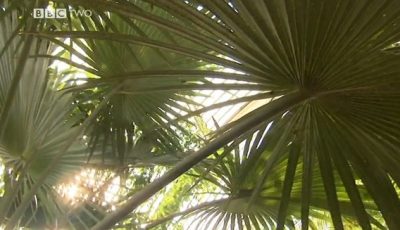
Rate of photosynthesis | i-Science
Rate of photosynthesis | i-Science
Photosynthesis is the chemical reaction through which plants make glucose and oxygen. It is crucial to all life on Earth because it is the...
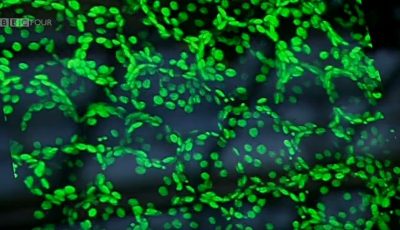
The discovery of chloroplast | Botany: A Blooming History
The discovery of chloroplast | Botany: A Blooming History
Timothy Walker explains how Julius von Sachs discovered where starch was made in a plant, and how new microscopy te...
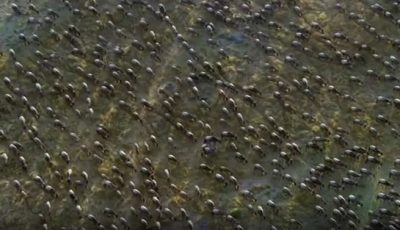
Safety in numbers | Life
Safety in numbers | Life
A clan of hyenas work together to protect themselves from lions.
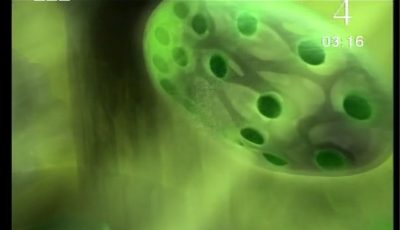
An introduction to photosynthesis | Short Circuit
An introduction to photosynthesis | Short Circuit
An introduction to how plants photosynthesise using chlorophyll, and how important the process is in maintaining the balanc...
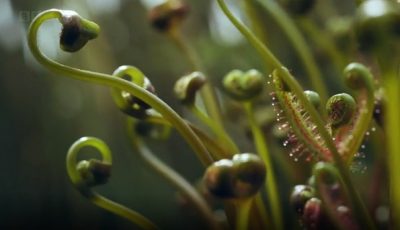
Searching for sunlight | Life
Searching for sunlight | Life
Different species of plants adopt a variety of ingenius techniques to secure much needed sunlight.
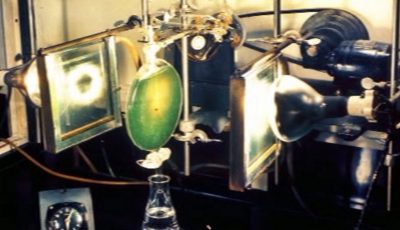
Calvin-Benson cycle | Botany: A Blooming History
Calvin-Benson cycle | Botany: A Blooming History
How Benson and Calvin established the biochemical reactions involved in photosynthesis.
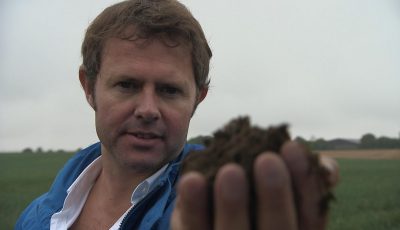
How photosynthesis is vital to the success of farming | Science of the Harvest
How photosynthesis is vital to the success of farming | Science of the Harvest
Stefan Gates reveals how we can see photosynthesis in action using some simple props.
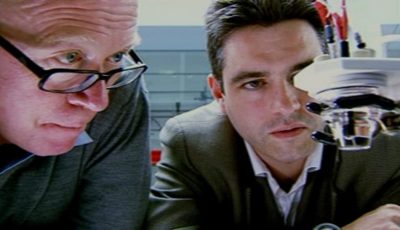
Generation of clean fuels | Botany: A Blooming History
Generation of clean fuels | Botany: A Blooming History
Scientists harnessing the processes in photosynthesis.
Plant reproduction
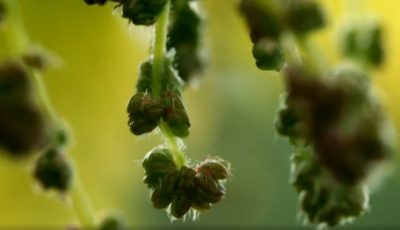
The reproduction of an Oak tree | Oak Tree: Nature's Greatest Survivor
The reproduction of an Oak tree | Oak Tree: Nature's Greatest Survivor
George McGavin investigates the reproduction of an oak tree, and how millions of tiny pollen grains tr...
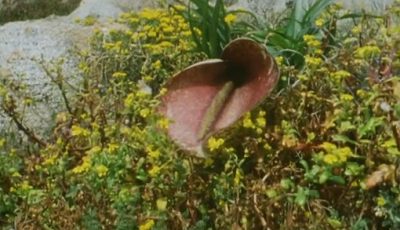
The dead-horse arum and the titan arum | The Private Life of Plants
The dead-horse arum and the titan arum | The Private Life of Plants
David Attenborough describes how the dead-horse arum and the titan arum are able to reproduce.
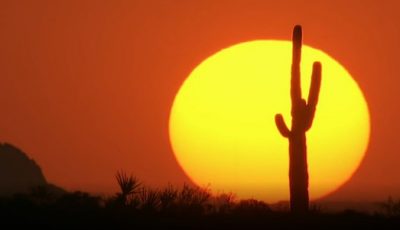
Cunning Cacti | Life
Cunning Cacti | Life
This cacti deploys a variety of methods to maximise its chances of successful seed dispersal.
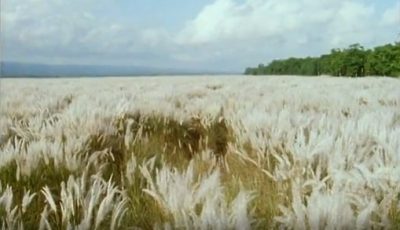
The pollination process | The Private Life of Plants
The pollination process | The Private Life of Plants
David Attenborough describes the process of pollination and how this helps plants reproduce.
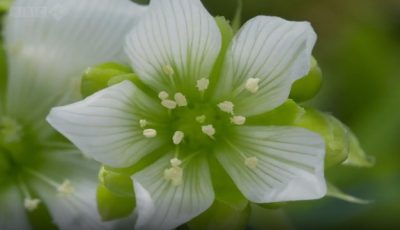
Flower power | Life
Flower power | Life
Flowers lure pollinators to ensure that plants can reproduce.
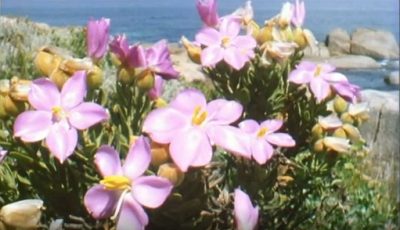
Flight of the bumblebee | The Private Life of Plants
Flight of the bumblebee | The Private Life of Plants
David Attenborough explores the role of insects, especially bees, in the pollination process.
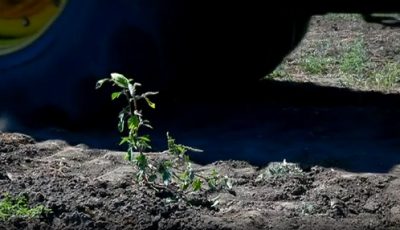
Germination | Bitesize Science
Germination | Bitesize Science
Seeds need the conditions to right in order to be able to germinate.
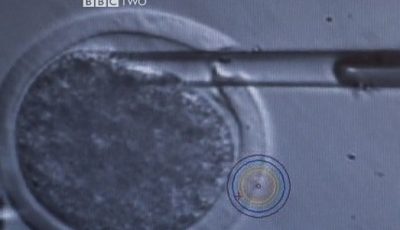
Clones | i-Science
Clones | i-Science
Daphne and Barbara are so similar because they are clones, two people who have exactly the same genetic makeup. When their mother was pregnant, her fertil...
